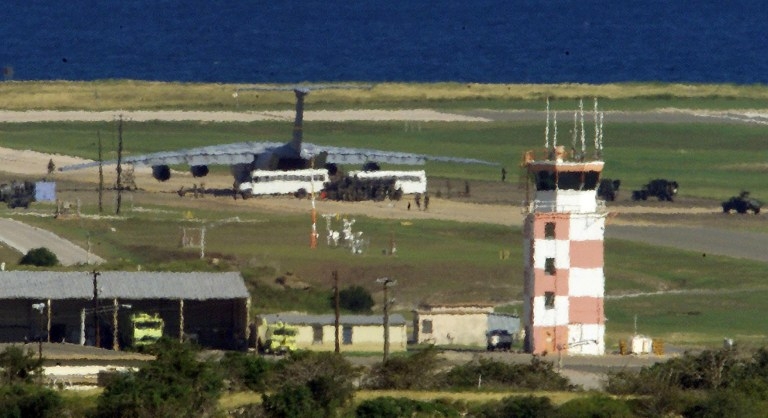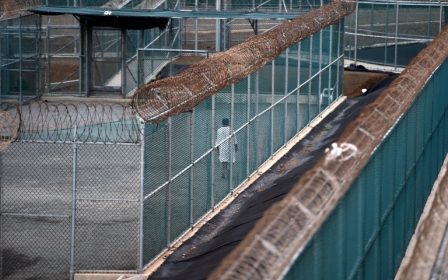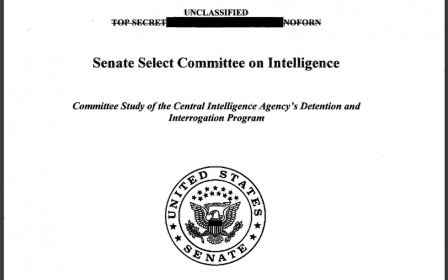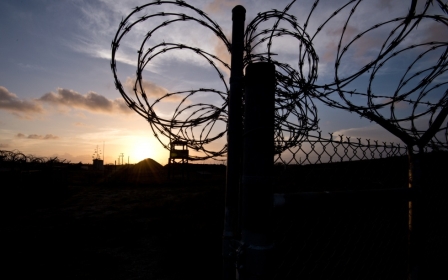White House finalising plan to close Guantanamo

WASHINGTON - The White House is in the "final stages" of a plan to close the Guantanamo Bay detention facility, spokesman Josh Earnest said on Wednesday.
President Barack Obama made the closure of the controversial offshore prison a priority when he took office in 2009, but the plan has faced numerous setbacks, including Congress blocking the transfer of detainees to US prisons.
"The administration is in fact in the final stages of drafting a plan to safely and responsibly (close) the prison at Guantanamo Bay and to present that to Congress," Earnest said.
"That has been something that our national security officials have been working on for quite some time, primarily because it is a priority of the president."
The prison has been the site of alleged abuses, including the waterboarding of prisoners under interrogation, and the White House says it is used as a propaganda tool for militant groups recruiting supporters to fight the US.
The operation of the centre on a US enclave on Cuba is not an effective use of government resources, Earnest told reporters.
"This is complicated work, but we have made a lot of important progress," he added.
Obama's former envoy who was charged with the task of seeing that the prison was closed, Clifford Sloan, said that it was time to remove restrictions under current law that keep the prison from being closed, reported Reuters.
"I think we need to finish the job of removing the very irrational restrictions that are in current law," Sloan said in a briefing on the issue at a Washington law firm. "It's very unfortunate, I think, that closing Guantanamo has become a partisan issue for the most part."
The Guantanamo US military facility is opposed by the Cuban government, with which the US recently restored diplomatic relations.
Cuban Foreign Minister Bruno Rodriguez called for the return of the territory to Cuba while in Washington on Monday.
Washington has slowly been sending prisoners back to their home countries or to third countries, something that needs to continue if the facility is to shut, Earnest said.
Other detainees need to be prosecuted or reviewed for release, he said.
A group of six Yemeni detainees were transferred to Oman, the United States said in June, and a new special envoy tasked with closing the prison was also recently appointed by Secretary of State John Kerry.
But the transfer of detainees to the United States was opposed by Congress, and some lawmakers have tried to halt all transfers out of Guantanamo, saying the releases could lead to more attacks.
Earnest said he was concerned about seeing Congress "repeatedly impede the effort to close the prison at Guantanamo Bay despite bipartisan agreement that closing the prison is actually in the national security interest of the United States".
Obama has several critics on the issue, including Robert M Chesney, a University of Texas law professor who worked on detainee policy for the administration in 2009, and who this week told the New York Times: “The chances of getting it done on Obama’s watch are getting increasingly slim.”
Just under half of the detainees remaining have been cleared to leave but have yet to be resettled or repatriated.
New MEE newsletter: Jerusalem Dispatch
Sign up to get the latest insights and analysis on Israel-Palestine, alongside Turkey Unpacked and other MEE newsletters
Middle East Eye delivers independent and unrivalled coverage and analysis of the Middle East, North Africa and beyond. To learn more about republishing this content and the associated fees, please fill out this form. More about MEE can be found here.




